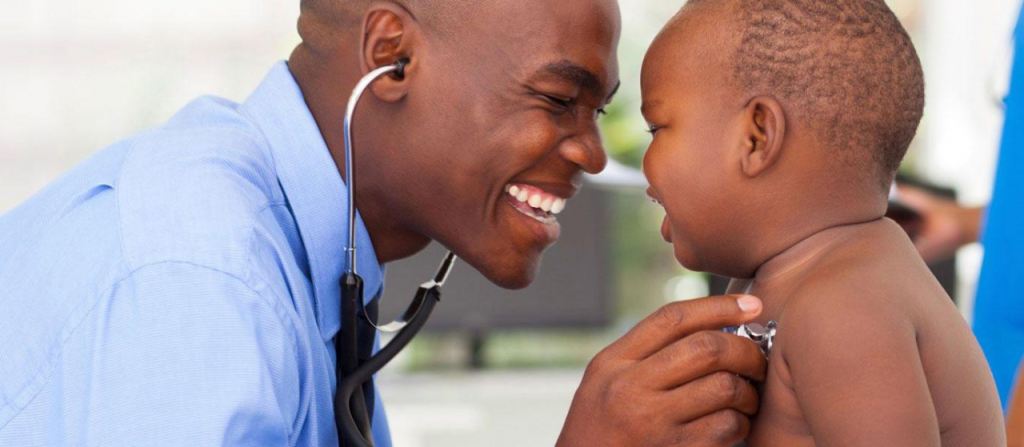Author: Uchegbu Henry Favour

Health and well-being in Africa are influenced by various factors that are unique to the continent, including culture, society, countries, and regions. African culture emphasizes communal living and interconnectedness, where an individual’s well-being is closely intertwined with the community’s welfare.
A holistic approach to healthcare is an essential aspect of wellness in African culture. Traditional healing techniques, rooted in centuries-old wisdom, often overlap with modern medical techniques. Traditional healers play a vital role in treating physical ailments, and spiritual, and emotional well-being.
African societies recognize the significant role of family and community support in healthcare. Families provide social stability and ensure people have access to resources and support throughout their lives. Traditional African medicine involves herbalism based on different African beliefs and cultures. However, the lack of trust in its practices by Africans due to the absence of medical records has led to its decline.
The arrival of Europeans brought modern medicine, which has brought many positive changes to the health and well-being of people in Africa. However, inadequate facilities in most rural regions in Africa deprive its inhabitants of good health and well-being.
Healthcare challenges vary from one African country to another. Although health service delivery challenges are most commonly encountered in countries with a high human development index (HDI), human resources challenges are gaining more attention in those with a low HDI. Over the years, African healthcare systems have been plagued by human-made challenges that span organizational, human resources, financial, engineering, and political developments. In 2007, the World Health Organization (WHO) developed a framework for describing healthcare systems in terms of six main components: service delivery, healthcare workforce, healthcare information systems, medicines and technologies, and financing. Unfortunately, the majority of African countries are unable to meet the basic requirements for effective healthcare systems. Poor governance and human resources problems are attributed to a poor supply chain in resource-limited countries. However, there are recommended solutions to key healthcare system challenges. It is essential to explore these solutions in-depth to identify, generate, and implement contextual solutions that make significant population-level health gains with the efficient use of resources.
Financial barriers to healthcare services are prevalent in Africa, with high rates of out-of-pocket expenditure, due to ineffective national health insurance schemes and poor service integration. Moreover, human resources deficits and the “brain drain” from Africa to Europe, the Middle East, and North America are all contributing to healthcare outcomes. Industrial action in the healthcare industry (healthcare worker strikes) is common in Nigeria due to delays in healthcare workers’ salaries, hampering most aspects of healthcare service delivery and preventing the delivery of high-quality healthcare services to the Nigerian population.
Health problems vary across the continent, and some areas are dealing with related diseases such as malaria, HIV/AIDS, and tuberculosis. These challenges are exacerbated by limited access to healthcare, clean water, and sanitation. At the same time, non-communicable diseases such as hypertension, diabetes, and obesity are on the rise, due in part to lifestyle and dietary changes.
Some countries, such as Nigeria, Ghana, Tanzania, Kenya, Rwanda, and Ethiopia, have started offering social health insurance programs as part of efforts to address the lack of financial stability protection systems in Africa.
Efforts to improve health and well-being in Africa involve the joint effort of traditional healthcare and traditional knowledge preservation with orthodox healthcare services for the development and implementation of good healthcare across the continent. Governments and non-governmental organizations should work together to ensure proper access to primary care, educate doctors, and raise awareness about prevention. This includes educating the community about hygiene, nutrition, and family planning.
Additionally, technological advancements play a revolutionary role in healthcare and should be effortlessly implemented in rural areas in Africa. Telemedicine, mobile health apps, and digital health solutions are promoting access to quality healthcare, especially in remote and underserved areas.
Addressing health inequalities in Africa requires comprehensive education and leadership. It involves recognizing Africa’s cultural, social, national, and regional diversity and improving health services to meet the unique needs of local communities. The challenges that healthcare systems in Africa face require in-depth exploration to identify, generate, and implement contextual solutions that make significant population-level health gains with the efficient use of resources. Together we can work for the health and well-being of all citizens in Africa.



